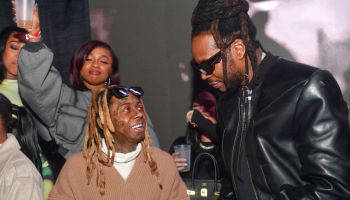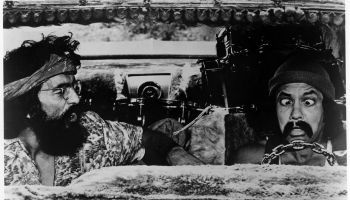Civil rights leader Reverend Al Sharpton has come under fire from Fox News’ Bill O’Reilly for his distribution deal with Cash Money Content, the publishing arm of Cash Money Records, Lil Wayne’s home label.
Lil Wayne has been under fire from some in Black America for lyrics that said he’d “beat the pu**y up like Emmett Till.” All of which resulted in the PepsiCo dropping their support of the artist.
O’Reilly in his daily Talking Points Memo on his show The O’Reilly Factor Thursday said the following:
“Right now the unemployment rate among black males age 16 to 19, 57 percent. 57 percent. It’s 25 percent for white males that age. Overall, black unemployment, 14 percent; white unemployment, 6.6 percent. The reason, in manypoor neighborhoods there’s chaos, violence and little discipline in the public schools. Kids aren’t learning. Also with the African-American-out-of-wedlock birth rate, at 73 percent. Many youngblacks are unsupervised and prone to imitate bad behavior like what Lil Wayne puts out. The parent company of Lil Wayne, Cash Money Content, which markets vile stuff that hurts children, is a partner in distributing Sharpton’s upcoming book. That’s right. Al Sharpton is in business with people who put out entertainment harmful to children.”
So let’s begin my talking points memo.
First, it’s not up to white America to tell Black America what to do, who to listen to on the radio, or who to look to as a leader. While it may feel like their burden, it’s not their job to tell us how we should undo the centuries of damage caused, since bringing the first of us over here on theslave ships from West Africa. If white America feels that strongly about Rev. Sharpton, maybe they should ask themselves why Blacks still need Rev. Sharpton’s in 2013.
Second, Bill omitted the fact that the first people to complain about the lyrics of rappers wereBlack people, in particular Black women. White people didn’t jump on the bandwagon until Ice-T came out with “Cop Killer” and then folks lost their minds, literally. And to be honest, white people have not had much to say since then on the subject of rap music except for when it can be used to suggest alleged hypocrisy within Black America.
The reality is that white America is not all that worried about Black children and the state ofBlack families. What’s really bothering white America is their children who are attracted to and caught up in Black culture.
There’s no way that Lil Wayne would ever sell the amount of records and sell out the amount of concerts that he does without the dollars coming from white America. The most recent survey done on whites and hip-hop showed that more than 70% of rap music buyers are white and that number has undoubtedly grown over the years. In 2011, there were 28.25 album sales for the rap genre as a whole. Without the support of the white listeners, rap would not be the billion dollar industry it is today.
So my third point to Bill and those who think like him on this issue is that since white people are the major consumers of hip-hop maybe we need to shift this whole conversation around. Perhaps, it’s Black America who should be asking white America to stop supporting artists like Lil Wayne.
If white America is so concerned about Black unemployment, the Black family, and Black children, it could start with getting out of the way of the policies and funding for programs that make it easier to Blacks to sustain healthy families and lives. This would include supporting universal and affordable healthcare. Stop telling women they can’t have abortions and then snatching the funding for social welfare programs that ensure that those same Black kids eat and have a roof over their head. Forget Sharpton for amoment and stop cutting the afterschool programs that pave the way for manyyoung blacks to be unsupervised as Bill put it. Stand with mothers on the other side of town for better schools for their children, not just yours.
And finally, depending on how you feel about Lil Wayne and music like his, Sharpton putting out a book under the Cash Money label may be a problem for some, but others might look at it as hope and much better material then what they’ve been putting out. Books unlike music require people to read and think and not just sing blindly along.
Who knows, it could be a real turning point for the label and its audience.
Jasmyne A. Cannick
Previously a press secretary in the House of Representatives, Jasmyne A. Cannick is a native of Los Angeles and writes about the intersection of race, class, and politics. She was chosen as one of Essence Magazine’s 25 Women Shaping the World and can be found online atjasmyneonline.com. Follow her on Twitter @jasmyne and on Facebook at /jasmyne.
















